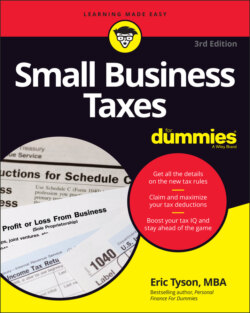Читать книгу Small Business Taxes For Dummies - Eric Tyson - Страница 50
Weighing the disadvantages of operating “solo”
ОглавлениеOrganizing and running your small business as a sole proprietorship has its cons, and these may outweigh the pros, depending on the type of business you’re running. Here are the drawbacks you should be aware of:
Liability exposure: Unlike in a corporation, where you have some shielding from liability thanks to the corporate structure, a sole proprietorship offers no such protection. However, as I discuss in the later section “Investigating liability insurance,” you may be able to buy liability insurance, depending on the type of business you operate.
Only one owner is permitted: If you want to provide some small ownership stakes to key employees, you can’t do that in a solo business. One exception: You can share ownership with your spouse so long as your spouse “materially participates” (that is, works) in the business. If both you and your spouse are owners, you each need to file your own Schedule C (more work), and you each need to pay Social Security tax on your share of the earnings (more tax).
Estate issues: With some business entities, the business structure survives your passing, but not so with a sole proprietorship. This may have negative consequences on the tax front and if you want your survivors to be able to easily continue with the company. (Flip to Chapter 5 for an introduction to estate planning.)
You’re taxed on all profits, even if you don’t want to take them all out of the business: If you have a big year or two, don’t need all the money your business is generating, and want to leave some of it in the business, you still pay personal income tax on all those earnings as a solo. Not so with some other entities I discuss later in this chapter.
Increased audit risks: The IRS knows that it finds more tax mistakes and fraud with solo businesses, so on average, it tends to audit such entities at a somewhat higher rate.
Now, in enumerating these possible drawbacks to operating a business as a sole proprietorship, I’m not trying to scare you off from doing so or talk you into, for example, incorporating. You need to consider which pros and cons may or may not apply to your situation and the type of business you’re envisioning or operating. And you need to consider the alternative entities, like the ones later in this chapter.
